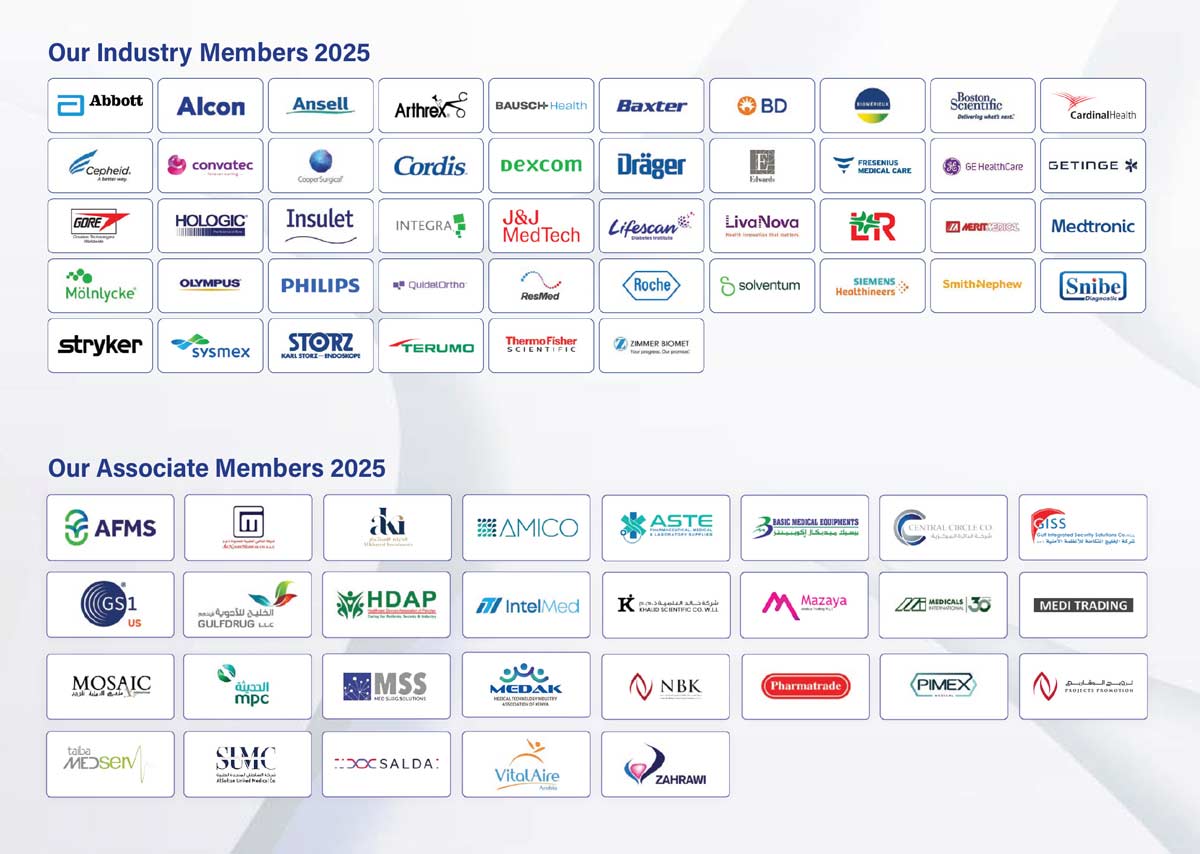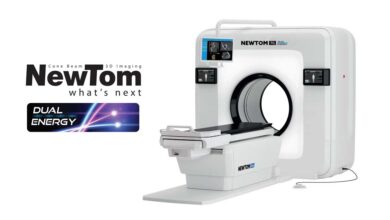Mecomed: Unlocking Access Through Better Coding
Priorities for Medical Devices and In‑Vitro Diagnostics in Saudi Arabia’s Healthcare System

Medical Coding is the silent backbone of modern care and a foundational component of health systems. By translating clinical diagnoses, procedures, and services into standardized alphanumeric codes, medical coding enables the systematic documentation, billing, reimbursement, and analysis of healthcare activities across both public and private sectors1. Beyond its administrative utility, medical coding plays a critical role in shaping national health policy, informing epidemiological research, guiding health technology assessments (HTA), and supporting the implementation of value‑based care models2.
As healthcare systems globally transition toward data‑driven decision‑making, the accuracy and consistency of coding practices have become integral to ensuring transparency, efficiency, and accountability2.
In Saudi Arabia, where healthcare transformation is a strategic pillar of Vision 2030, the development and standardization of medical coding infrastructure are central to achieving national health objectives. Initiatives led by the Saudi Health Council and other regulatory bodies emphasize the need for robust clinical classification systems, localized coding adaptations, and improved coding literacy among providers.
This article provides an overview of the major challenges and opportunities related to innovative technologies coding in the Kingdom of Saudi Arabia. It highlights critical topics that must be addressed to ensure effective future planning and decision‑making, particularly as the Kingdom advances its Vision 2030 healthcare transformation agenda.
These topics include budget‑conscious decision‑making, timely access to innovative technologies, closing coding gaps, and addressing the rapid pace of medical device innovation. By tackling these issues, the coding framework in the Kingdom can support innovation, enable efficient reimbursement, and enhance patient access to high‑value medical technologies. Additionally, this article highlights the pivotal role of the medical technology industry in shaping solutions. Through advocacy, collaboration, and training, Mecomed can help build robust coding frameworks that support innovation, reimbursement, and patient access.
Key Concerns & Considerations
Budget‑Conscious Decision‑Making
Worldwide, healthcare expenditures are rising and Saudi is no exception, and payers are expected to explore different mechanisms of reducing costs. This can lead to internal policies that restrict the adoption of the best medical technologies, even when they offer long‑term value or improved patient outcomes.
Access to Innovative Technologies
Many cutting‑edge medical devices are not adequately captured under Australian Refined Diagnosis Related Group (AR‑DRG v9). Without appropriate coding, hospitals may default to lower‑cost, less effective solutions, limiting patient access to the best available care.
Devices Innovation Pace
The innovation cycle of medical devices is very fast. On average, manufacturers introduce a new version or significant upgrade to existing devices every three years. These updates can range from minor design refinements to major technological breakthroughs. This rapid cycle creates challenges for reimbursement and coding systems, which are typically updated less frequently. As a result, new versions may enter clinical practice without appropriate coding or funding, slowing adoption and limiting patient access to the latest, most effective technologies.
Short‑Term Focus in Decision‑Making
Healthcare decisions, especially in budgeting and coding, often prioritize short‑term cost containment over long‑term value and outcomes. This can disadvantage innovative therapies that may have higher upfront costs but offer substantial savings and health benefits over time.
Coding Gaps Hindering Adoption
New innovations or newer versions are often not captured by current procedural or diagnostic codes. It is unclear if innovative technologies or newer versions have been considered in the currently adopted procedural and diagnostic code sets in KSA. If newer innovations are not captured, providers will be incentivized against adopting these procedures, in favor of traditional medical care, despite any differences in clinical efficacy or the patient experience. On the other hand, establishing new codes is typically a multi‑step process involving clinical evidence generation, cost‑impact assessment, and stakeholder consultation. During this time, hospitals may be unable to claim appropriate reimbursement, creating financial disincentives to adopt the therapy. Ultimately, this delay can restrict timely patient access to high‑value innovations, slow clinical uptake, and limit the health system’s ability to realize potential efficiency and outcomes gains.
Role of Mecomed & MedTech Industry
The medical technology industry, represented by organizations like Mecomed, plays a pivotal role in advancing better coding practices. Proper coding benefits both industry (ensuring access and reimbursement) and the health system (enhancing transparency and efficiency). In Saudi Arabia, Mecomed can act as both advocate and solution partner, uniting stakeholders (manufacturers, distributors, providers, and regulators) to drive coding improvements that support innovation and access.
Advocacy & Expertise
Mecomed bridges the best global practices and local implementation, advocating for international coding standards and highlighting success stories. Its KSA Chapter actively promotes the best practices in MedTech policy, with coding as a key focus.
Technical Collaboration
Industry can support code development by providing clinical data for new devices, similar to how manufacturers engage with coding bodies like CMS in the U.S.; local Mecomed members can assist Saudi regulators in updating code libraries and forecasting coding needs via structured collaboration.
Training and Capacity Building
Mecomed can support coder training in device‑heavy specialties, through workshops and webinars. This builds local expertise, reduces coding errors, and increases provider confidence in adopting new technologies.
Recommendations
- Horizon scanning processes that industry can feed into enable early identification of DRGs that may not sufficiently cover innovative technologies.
- Early multi‑stakeholder engagement (payers, coding authorities, clinicians, industry) to anticipate coding needs for emerging innovations.
- Early engagement with industry to map innovative technologies to procedures to DRG codes aiming to identify DRGs that do not sufficiently cover the cost of care from the provider perspective.
- The establishment of mechanisms that maintain financial incentives for providers to use innovative technologies or upgrades to existing technologies, especially for those products that fall out of the scope of HTA. Approaches used worldwide include:
- Protected budgets for innovative technologies at the provider level.
- Allowing interim or provisional codes while full AR‑DRG updates are pending, preventing delays in reimbursement.
- High‑cost device list at the payer level that provides top‑up reimbursement for approved technologies.
- Device‑level DRG modifiers that enhance the value of a DRG to ensure the innovative technology is covered.
- Establish fast‑tracked pathways for new technologies with strong clinical and economic evidence.
- Both short and long‑term impact of therapies are recommended to be evaluated and considered for decision-making and reimbursement.
By adopting the recommendations outlined, from regular updates to stronger stakeholder partnerships, Saudi Arabia can rapidly advance into a future where every medical device and procedure is tracked and valued. The payoff will be seen in the sustainability of healthcare financing, improvement of the health outcomes, and better quality of life of the Saudi population.
Mecomed is the medical devices, imaging and diagnostics trade association serving as the voice of the Medical Technology industry across the Middle East & Africa. Mecomed aims to bring all healthcare stakeholders together to improve the quality of people’s health through the timely introduction of meaningful Medical Technology innovations, which ultimately benefits the MEA region community. We foster Good Citizenship and promote ethical business behavior, working proactively with governments, regional bodies and healthcare professionals to deliver high-value solutions for better patient outcomes.

References
1. WHO. ICD‑11: International Classification of Diseases 11th Revision. 2019. Available from: https://icd.who.int/en/
2. Improving Health System Efficiency: The Role of Information and Communication Technologies. 2020.
Contributions & Acknowledgement
- Sarah AlHathlool, PharmD, MSc, Sr. Health Economist
- Martyna Giedrojc‑Amir, MPH, Director Value & Access MENA
- Murtada Alsaif, PhD, Health Economics and Market Access Lead














